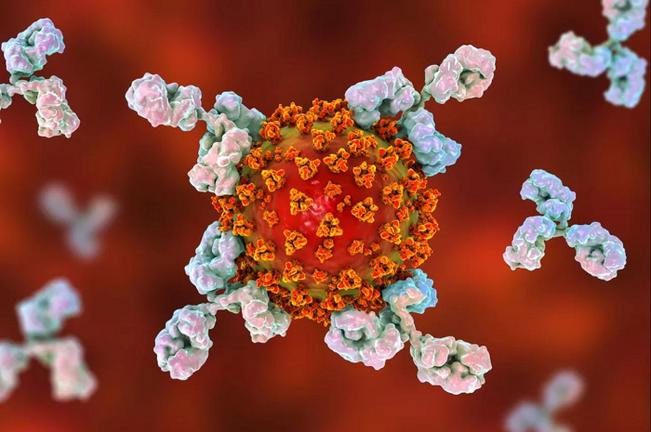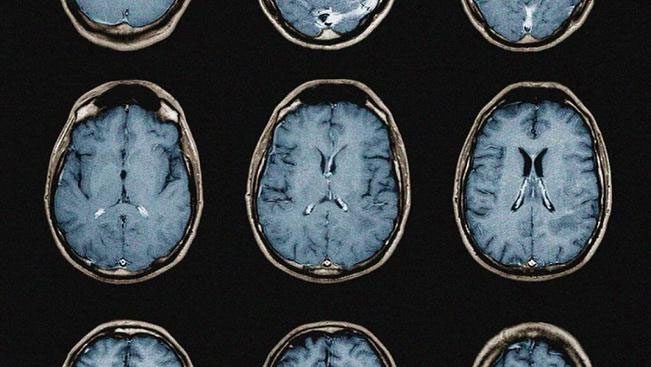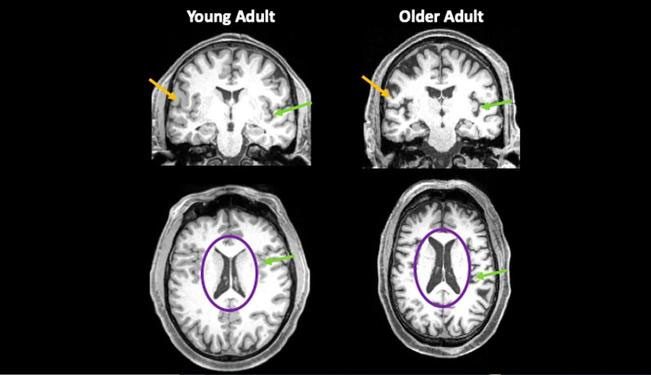In the more than 18 months since the pandemic began, researchers have continuously gathered knowledge about the significant impacts of Covid-19 on the human body and brain. These findings have raised concerns about the long-term consequences that the coronavirus may cause, affecting biological processes as well as natural aging.
Jessica Bernard, a cognitive neuroscientist, stated that her previous research primarily focused on understanding the brain changes associated with aging, aiming to examine how human thinking and movement capabilities change, especially in middle age and beyond.
She noted: “There is increasing evidence that Covid-19 may affect the body and brain for months or longer after infection with the virus.” Her research team has also explored how it may influence the natural aging process.

Covid-19 patients process information more slowly than those without the disease.
How does the brain respond to Covid-19?
A preliminary study conducted in August 2021 on a large scale aimed to investigate the changes occurring in the brains of individuals who had contracted Covid-19, attracting significant attention from researchers in the neuroscience community.
To conduct this study, scientists relied on a database called UK Biobank, which contains over 45,000 brain imaging data from UK residents since 2014. This data is crucial for comparing brain images of Covid-19 patients before and after the pandemic.
The research team identified individuals who had contracted Covid-19 and performed additional brain scans on them. They then used this new data to compare with their previous brain images (prior to the pandemic). The scientists compared those who had experienced Covid-19 with those who had not, based on age, gender, testing dates, research locations, and other potential health factors.

Changes in gray matter in Covid-19 patients.
The research team quickly observed a marked difference in gray matter in the brain between those who had contracted Covid-19 and those who had not. Specifically, the thickness of gray matter in certain brain regions (also known as the frontal and temporal lobes) decreased in the Covid-19 group, while these structures remained intact in the non-infected group.
Typically, the volume or thickness of gray matter decreases as people age, but the changes in gray matter in Covid-19 patients are significantly greater than those seen in normal aging. Furthermore, the study also showed that individuals who had contracted Covid-19 experienced loss or reduction in brain volume even when their illness did not require hospitalization.
Ultimately, researchers concluded that individuals who had contracted Covid-19 process information more slowly than those without the disease.
What do changes in brain volume signify?
In the early stages of the pandemic, one of the most common symptoms reported by Covid-19 patients was the loss of taste and smell (a structure located near the front of the brain that transmits signals about odors from the nose to other brain regions).

Covid-19 patients experience loss/reduction in brain volume even when their illness does not require hospitalization.
Notably, the areas related to taste and smell are among those affected by Covid-19. However, beyond Covid-19, individuals with Alzheimer’s disease also face the risk of reduced smell.
Therefore, it is still too early to draw any conclusions about the impact of Covid-19 on the decline in taste and smell function. However, the brain changes caused by Covid-19 cannot be ruled out, as they may indirectly lead to memory loss.
What are the next directions?
These new findings somewhat help scientists understand the importance of research; however, many important questions remain unanswered, such as: What do the changes in the brain after Covid-19 mean for the process and rate of natural aging? What is the extent of recovery of the brain after virus infection?
This is an actively researched and open field; however, answering these questions requires scientists to address and clarify the entire biological aging process as well as the factors influencing its transition. As life expectancy increases, more people will age. Beyond the goal of living long and healthily, we also aim for sustainable development, especially in the context of Covid-19, which will help us understand the extent to which the brain can recover after illness.


















































